Your Microbiology Toolbox
Versatile and Portable: Lightweight, easy to carry and battery operated, the ALERT Lab can be used at remote locations for quantifying E.coli, Total Coliforms, Fecal Coliforms or Enterococci presence in any type of water.
Connected: Can be controlled from any mobile device or computer and communicates results directly to the secure Data Analytics platform.
Easy to use: No need to be a rocket scientist to use this device, anyone can be trained in a matter of minutes. Perfect for the microbiology PhD but also for the citizen scientist!
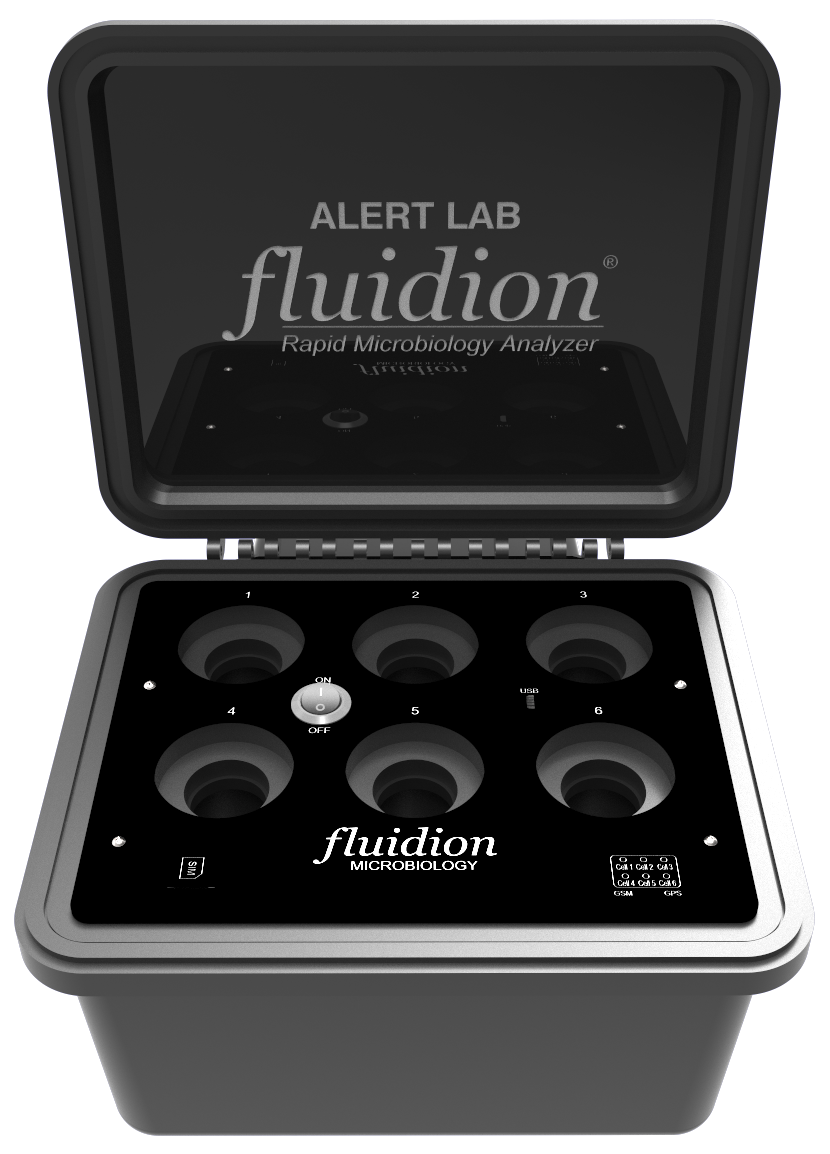
Approved: ALERT One has successfully passed WHO and Unicef verification under the Joint Monitoring Programme, report available upon request.
Fast: Provides a quantified response in terms of bacteria/100 mL in as little as 2 hours, with automatic detection alerts sent direcly to your e-mail.
Specific, Accurate and Precise: Measures viable bacteria, same as current regulations. Provides outstanding metrological characteristics that are similar to, and in some cases surpassing, those of approved laboratories.
Applications
-
Environmental
Water, the lifeblood of our planet, requires vigilant protection. The challenge lies in the complexity of monitoring diverse aquatic environments - from small waterways to the vastness of the oceans. What's more, extreme environmental conditions and lack of infrastructure make the task impossible or very costly. That's where advanced technology plays a key role, providing innovative, automated and IoT-connected solutions. These tools provide continuous, accurate data that drives timely and effective strategies to study and protect our waters.
-
Recreational Water
Natural waters can be a hub for fun, recreation and sports. Ensuring their safety is critical, as microbial contaminants can pose serious public health risks. Traditional water testing methods often struggle to provide timely and continuous monitoring. Implementing advanced, automated technology not only enhances monitoring programs, but also helps to identify and mitigate potential hazards in a timely manner, ensuring that our recreational waters remain safe and enjoyable for all.
-
Drinking Water
Access to drinking water is a major global issue, supported by the United Nations' Sustainable Development Goals. Providing safe drinking water involves a number of steps - collection from groundwater, surface water or recycled sources, treatment and disinfection, storage and distribution. This task is fraught with challenges, especially the need to comply with stringent regulations and the inherent complexity of water treatment processes. New-age automated monitoring technologies are helping to ensure water safety, facilitating real-time analysis and improving decision-making.
-
Wastewater
Wastewater management, which includes the collection, treatment, and reuse of wastewater, plays an essential role in protecting public health and reducing the risks of pollution and flooding. Wastewater can be of domestic, industrial or agricultural origin and is typically treated in wastewater treatment plants. However, the challenges posed by aging infrastructure, urban population growth and climate change have a direct impact on the efficiency of these processes. It is becoming essential to integrate continuous monitoring within and downstream of treatment plants in order to assess treatment efficiency, optimize processes and ensure total compliance.
-
Digital Cities
In the modern urban landscape, the concept of a “Digital City” is quickly becoming a transformative vision. These digitally enhanced cities seamlessly integrate traditional infrastructure with cutting-edge digital solutions to improve the quality of life for their residents. Beyond the implementation of digital technologies, a Digital City innovates with smarter transportation systems, improved water management, and energy-efficient buildings. They resonate with a responsive city government that prioritizes safety and the evolving needs of an aging population. In addition, by harnessing the power of information and communication technologies, Digital Cities offer improved efficiency, promote sustainability, and enhance overall quality of life. With tools such as IoT and autonomous systems, cities are stepping into a future where operational efficiency meets sustainable urban living, creating environments that are not only livable, but thriving.
-
Agriculture
Water is a pivotal element of agriculture and must be closely monitored to protect human health, animal welfare and environmental integrity. Bacterial contamination of water can cause illness in humans and animals, significantly impacting food and livestock safety and productivity. In addition, unchecked bacteria can harm the environment by causing algal blooms or fish kills. With a global population expected to reach nearly 10 billion people in 2050, ensuring sustainable agriculture and production is imperative. The use of advanced, automated and IoT-connected microbiological analysis tools enable real-time tracking and prevention, ensuring that our agriculture remains safe, productive, and environmentally friendly.
-
Process Water
At the beating heart of industrial facilities, water plays a central role, powering essential manufacturing and cleaning functions. Ensuring the purity of this water before it is discharged is critical not only for environmental protection, but also for operational efficiency and regulatory compliance. The days of manual sampling and waiting for third-party lab results are behind us. Today, with increased regulatory requirements and heightened public awareness, immediate access to water quality data is essential. Modern, real-time monitoring systems powered by IoT and automated technologies offer a proactive approach. This not only protects against potential shutdowns, but also optimizes processes, reduces costs, and ensures compliance. In an era where every drop counts, comprehensive water quality monitoring in industrial processes is key to sustainability, efficiency and safety.
-
Citizen Science
New autonomous networked technology enables powerful Citizen Science approaches by providing a user-friendly data-driven solution that integrates instrumentation, communication infrastructure and cloud-based visualization.
Related Case Studies
-
Monitoring the Seine (Paris, FR)
To make the Seine River swimmable for the Paris 2024 Olympics, the City of Paris embarked on a €1.4B Swimming Plan and partnered with Fluidion for water quality management. Using ALERT Systems, Fluidion is successfully establishing a comprehensive dataset on the river's bacterial levels, and monitors water quality impacts of storm events, evaluates treatment initiatives, and provides scientific reports on factors affecting water quality. Their involvement supports Paris's goal of opening the Seine for public swimming by 2025.
-
Lake Chelan monitoring (WA state)
Lake Chelan is a pristine lake in the mountains of WA state, but facing challenges and pressures from development and tourism. Using the ALERT System has allowed the Lake Chelan Research Institute and the Washington Sea Grant to assess the impact of installing boat sewage pump-out stations at the marinas, and demonstrate excellent water quality in the lake year-round.

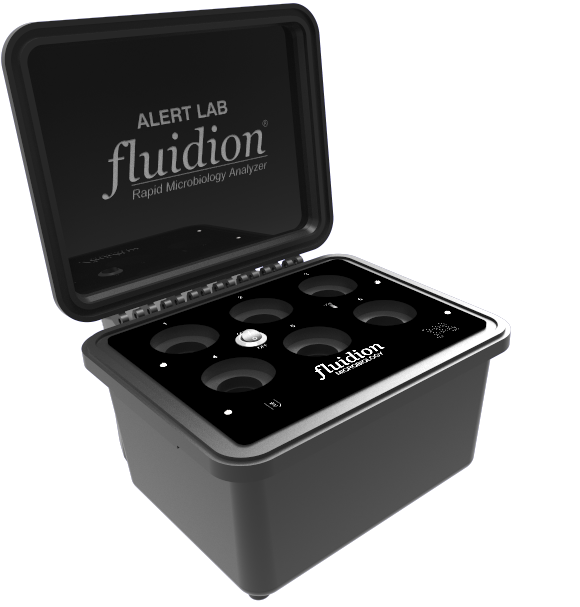



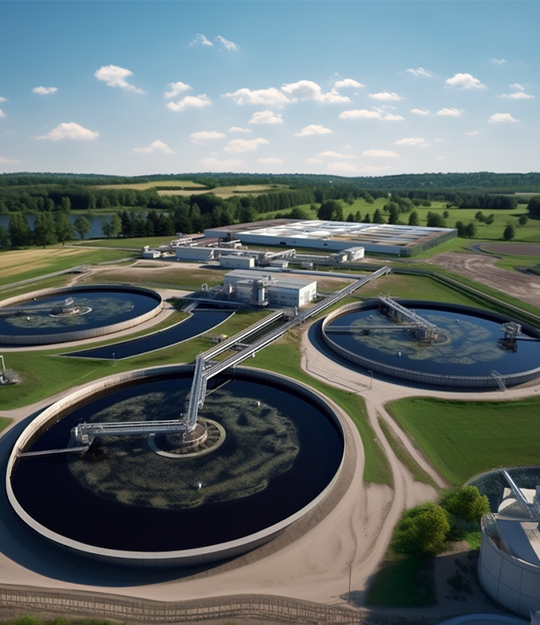



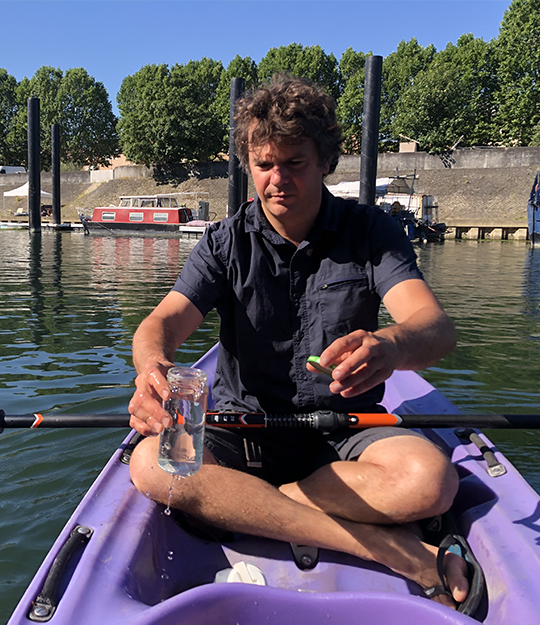
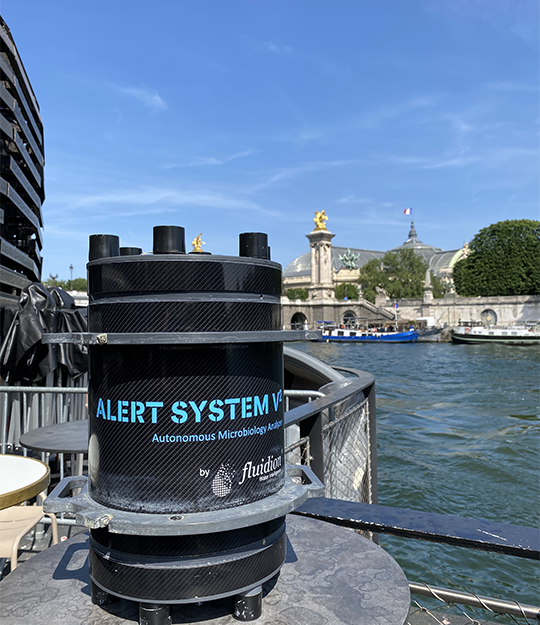
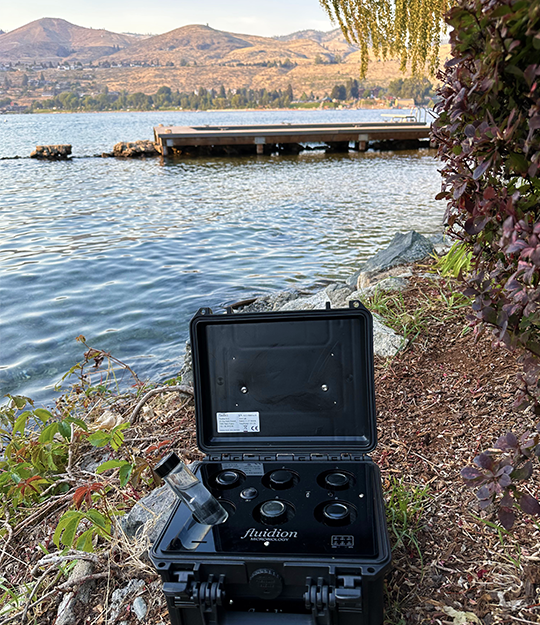
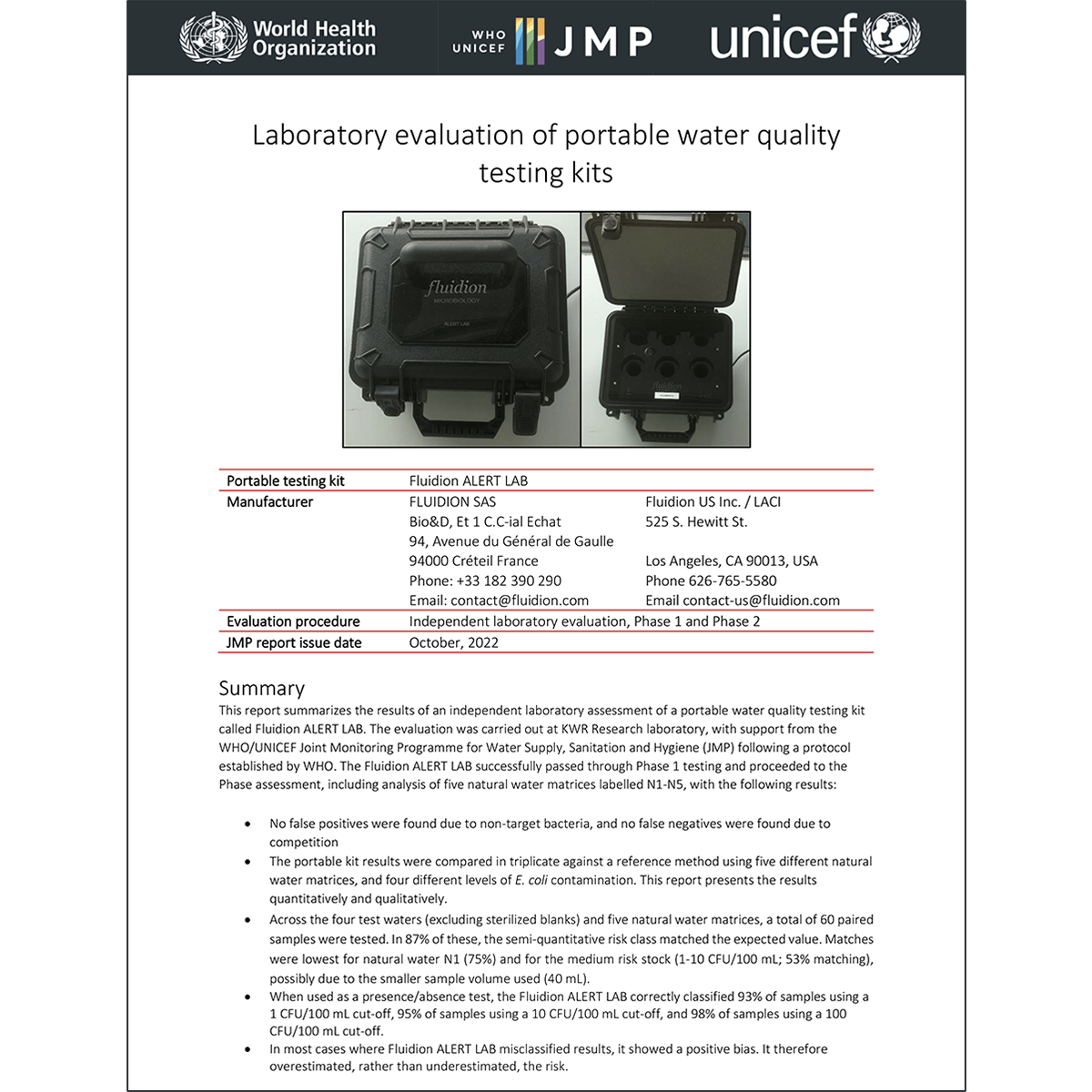
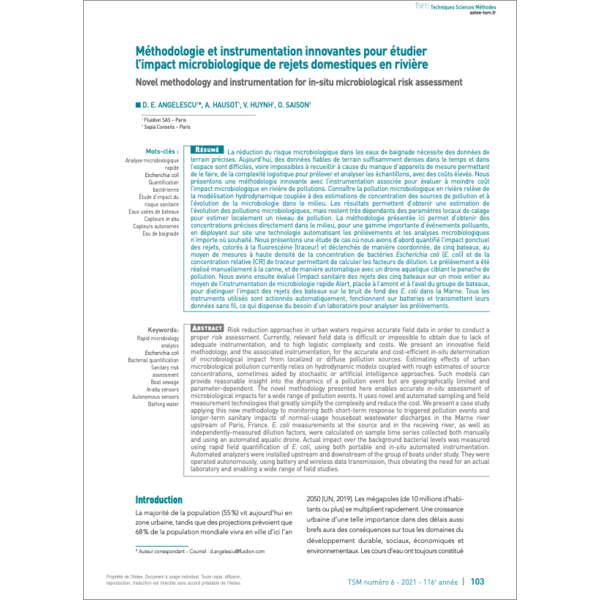
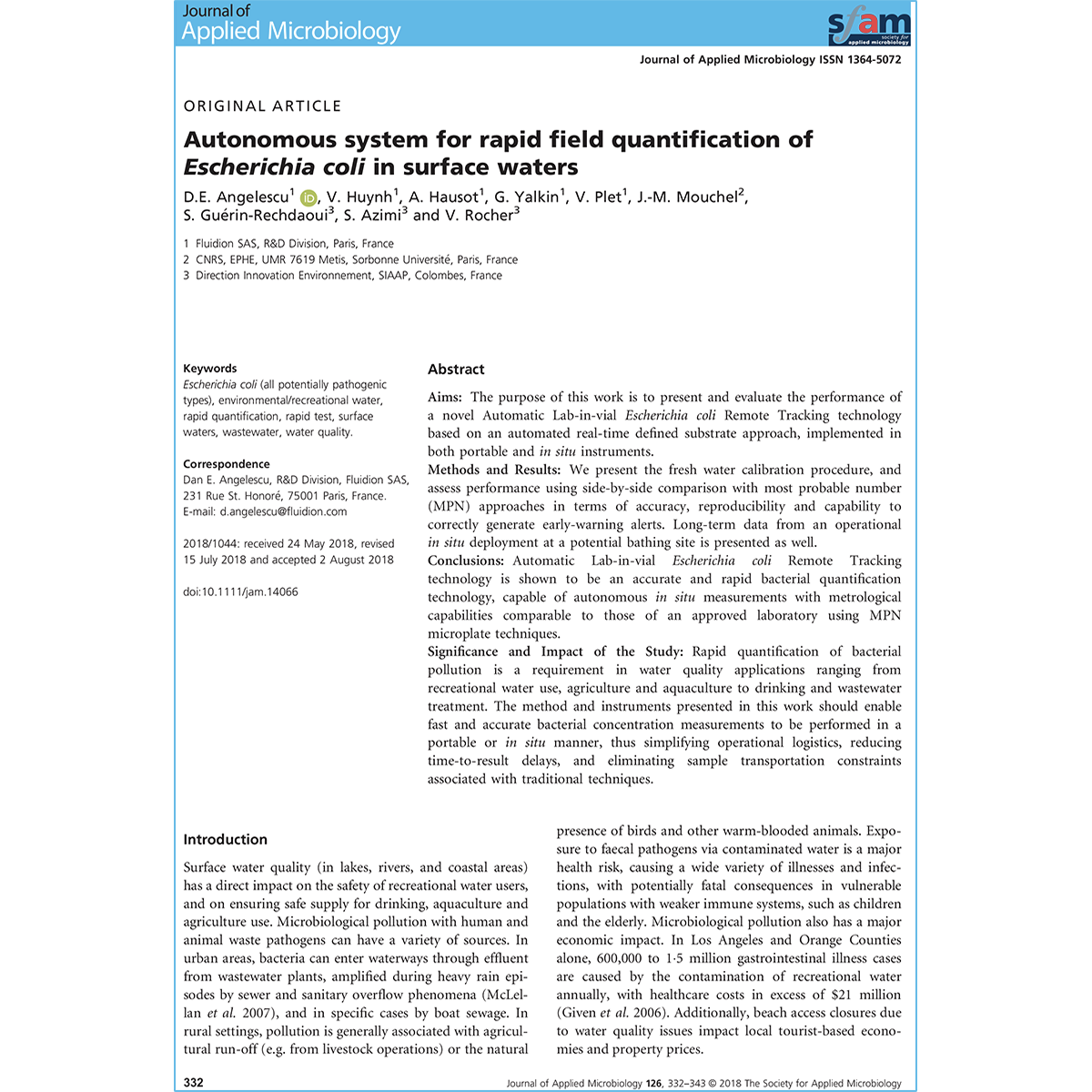

Why the ALERT Lab ?
‣ Simplify your work. ALERT Lab can be monitored remotely while it performs incubation, optical monitoring and wireless data transmission.
‣ Eliminate the need for sample refrigeration and transport to the lab (and all the associated carbon footprint), thus minimizing errors due to sample degradation during hold times.
‣ Trust your data with high accuracy and a repeatability comparable to laboratory methods, proven in numerous side-by-side studies.
‣ Ensure drinking water safety. ALERT technology provides target-specific detection and accurate risk class identification, as verified by the WHO and Unicef.
‣ Get more from your sample. The Fluidion ALERT technology measures not only free-floating viable bacteria, but also the attached viable bacteria (unlike current laboratory methods) - so you have immediate full visibility of the associated risk.
‣ Unlike competing rapid methods, ALERT will only measure viable bacteria, and will not be affected by dead bacteria or free enzymes present in the sample as a consequence of, e.g., disinfection processes.
‣ Remotely control and communicate with the analyzer through a simple and intuitive interface, or have your server talk to ours through our secure API.
‣ Get automatic alert notifications as soon as a sample is quantified, for immediate data-driven decision making.
‣ Access your online data from anywhere, 24/7, with complete security. And retain 100% archival of all past measurements, with complete measurement records and quality control data.
(Photo credits: ©UK Environment Agency and Séverine Delbosq (Ile St Denis))